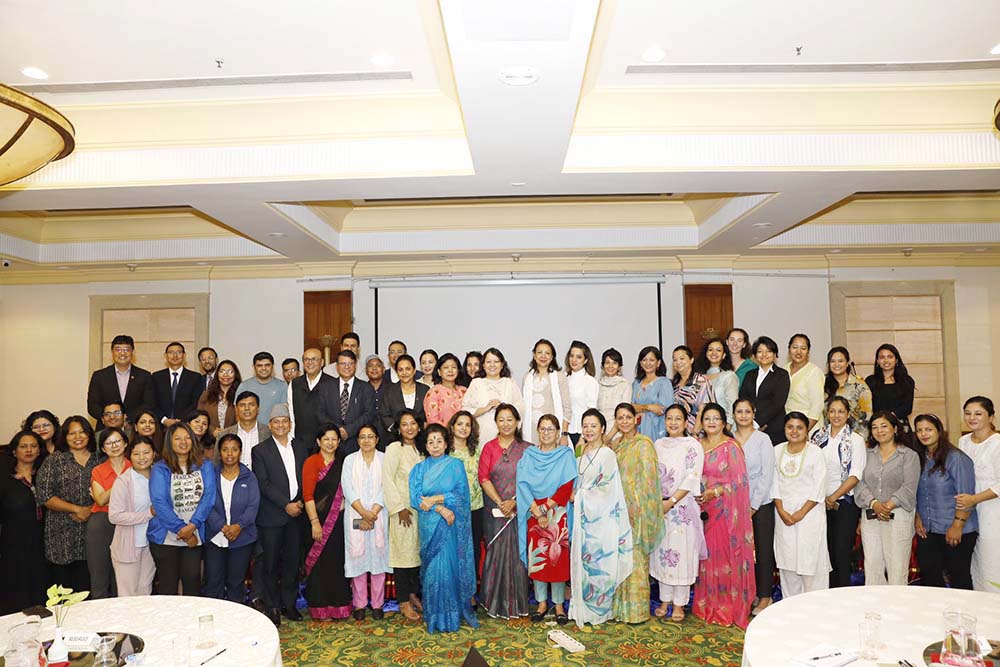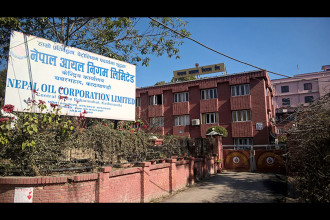
KATHMANDU: A delegation from the European Union to Nepal and the Ministry of Industry, Commerce and Supplies jointly organised an event titled 'Fostering GESI Responsive Trade and Investment Policymaking', on Tuesday.
The workshop aimed to bridge the gap between policymaking and implementation through active stakeholder engagement. Participants stressed the need for women's greater participation in the business sector and emphasized the importance of building resilient businesses to address challenges.
Key discussions included the significance of GESI architecture for development, the impact of trade and gender, social barriers on women's engagement in trade, and the lack of gender provisions in international trade agreements. Presentation on progress at the global and national level in promoting gender equality in trade, along with key recommendations on Nepal Trade Integration Strategy 2023 were also made at the event.
Gobinda Bahadur Karkee, Joint Secretary, MOICS, lauded the stakeholders' efforts in promoting gender integration in business and urged collective action to achieve sustainable development. "We recognise the efforts of all stakeholders in promoting gender integration in business. It is high time to map trade policies through a GESI perspective and work collectively to achieve sustainable development goals (SDGs)," he said during the opening session.
Neeru Rayamajhi Khatri, President, Federation of Woman Entrepreneur's Associations of Nepal (FWEAN), emphasized the role of women entrepreneurs and the need for support in capacity-building initiatives during her remarks at the opening session.
Mona Shrestha Adhikari, facilitator of the workshop, delivered a thematic presentation on mainstreaming GESI in Nepal's Trade Integration Strategy (NTIS) for 2023, focusing on overcoming barriers and creating an enabling environment for businesses of women and marginalised communities. The workshop also showcased various research initiatives and capacity-building programmes for women entrepreneurs.
Technical sessions by Shyam Sundar Jnavaly and Suman Shakya highlighted vulnerabilities being faced by Nepali businesses due to socioeconomic, geographical, and technological constraints. They emphasized that Business Continuity Management and Business Continuity Plan are key tools that will support attracting investment and promoting business at the global level and help to build resilient businesses.
The workshop also featured interactive group discussions, wherein participants identified various factors contributing to the resilience of women-led businesses across agriculture, services, and manufacturing sectors. These factors included family support, preparation of business continuity plans, technical support, and digital literacy, access to finance, and proper coordination and communication, among others.
The highly interactive workshop brought together experts, stakeholders, and entrepreneurs from diverse sectors including business associations, development organizations working on socio-economic development, disability and ethnic minorities, academia and government agencies fostering discussions on inclusive policies and resilient businesses for international trade.
READ ALSO:
- EU delegation organises orientation for 60 Nepali students receiving scholarships
- Tourism Minister appeals to EU delegation to remove Nepal from blacklist
- 13 women entrepreneurs honoured at ‘Standard Chartered NewBiz Women Summit & Awards 2023’
- FWEAN launches BDC, a digital platform, to help women entrepreneurs
Published Date: July 26, 2023, 12:00 am
Post Comment
E-Magazine
RELATED B360 National


-1772534372.jpeg)

-1772527494.jpeg)
